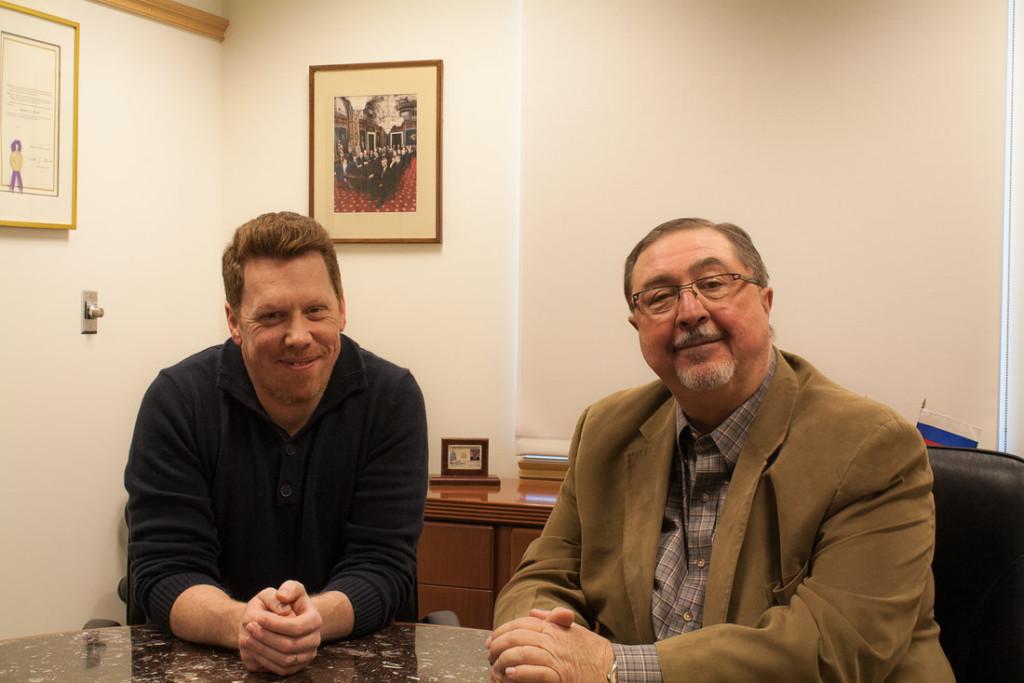The Robert C. Byrd Center for Legislative Studies (CLS) is undertaking a large-scale oral history project, interviewing former staffers, colleagues and friends of the late senator.
Ray Smock, the director of the Byrd CLS, and Jay Wyatt, director of programs and research, are both active with the project, though Wyatt is heading it up.
Smock described oral history as “getting at stories that might not be found in research.” He also believes it “fills in the gaps in the record.”
Wyatt added that oral history transcripts “round out a collection” of historical documents and artifacts of an individual. The oral history interviews enable the historian to “find out things not in the headlines.” He also believes it will add “significantly to the legacy of Robert C. Byrd.”
So far, the Byrd CLS has interviewed approximately 40 people who had a connection with Byrd, including former Governor Gaston Caperton (D-WV), Senator Carl Levin (D-MI), and former Congressman Ken Hechler (D-WV). The oral history interviews are not limited to politicians and have also included former staffers, musicians and state appointees.
Wyatt said some of the interviews reveal surprising information about Byrd including his love of visiting Dairy Queen fast-food restaurants. Another interesting fact was his strength as a classical violin player, not just a country fiddler. Wyatt and Smock both indicated that facts like these help to develop a more human understanding of a politician who can often be thought of only as a “D” or “R.”
Smock also provided a brief history of the evolution of oral history as an accepted discipline. He noted the recordings of former slaves done in the 1930s as one of the first examples. The discipline picked up steam in the 1970s and 1980s, but gained its full credibility in the last 20 years.
Alan Sturm, a resident of Shepherdstown, has been volunteering with the Byrd CLS and has conducted some interviews. He said, prior to becoming involved with this project, he “didn’t really know much about the formal discipline associated with oral histories.”
Sturm believes an oral history will paint a “much more human picture of the man.” He cites an interview done with a staffer who was with Byrd when news of the space shuttle explosion was announced. The staffer was able to describe Byrd’s reaction, information that wouldn’t have been captured in any other way.
Since the Byrd CLS is so conveniently located on Shepherd’s campus, students are able to take advantage of the results of the oral history project. Smock believes students can “see politics work” by reading the transcriptions of the various interviews.
Wyatt said the interviews also demonstrate the great amount of negotiation that goes into practically any political decision or even governmental decision.
Sturm pointed to the fact that so many buildings on Shepherd’s campus are named for the late senator and that students now have a chance to put a backstory to the name.
Students can visit the Byrd CLS’s website at www.byrdcenter.org to view transcripts of the oral history project. New transcripts are added regularly and Smock said the project will “go on as long as the it’s [Byrd CLS] here.”

